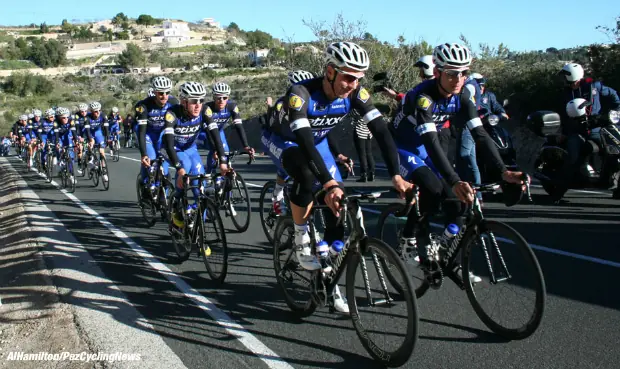
Surely one of the great benefits of riding on a professional team is the annual training camp. Who wouldn't relish hours of riding in gorgeous weather on great roads in exotic locales? Perhaps you are lucky enough to venture to one of the many training camps available from companies happy to offer you that same "pro" experience. Many amateur teams also do training camps as a way to load up on miles and camaraderie in the final run into the racing season. If you aren't in any of these categories, fear not...the DIY training camp is a perfect alternative! There are a few considerations whether with a team or on your own. Below are my five considerations for your own training camp.
Ride Lots
While this may be a given for most of you considering a training camp there are a few caveats. First, nothing sustained above threshold! Taking the time in the early season to set a big foundation of fitness is one of the long term keys to a successful year. Unfortunately, when riders get together things tend to get out of control quickly. DO NOT SUCCUMB to the temptation of riding hard tempo or racing each other. I have my riders self limit at 10-15 beats below threshold heart rate (HR) for the first couple of days, then open the throttle a LITTLE BIT after that. Using HR as the metric is a great way to plug into the idea of perceived exertion and sustainability.
This year at camp I threw the team under the bus just a little bit by having our opening ride a long one at 75 miles with 6,500 feet of climbing. I did this to both overload their bodies and instill a little fear. If that first day is too short everyone will want to light the afterburners and may overcook themselves for the following rides. Our guys were definitely tired and a little scared as the following days were scheduled at 55 miles with 5,500 feet of climbing, 100 miles with 6,500 feet of climbing and a final day of a mere 40 miles and 2,500 feet of climbing. I scheduled the longest day for the third day so they would always have it in the back of their mind on any efforts. Worked like a charm. The team held back and was still motivated and fairly fresh for the big one.
Plan The Season
Most team camps have a planning component. Riders will sit down and map out the primary races for the year and what needs to be done to ensure success. My challenge to you and your team is to take it a step farther. We use a structured team planning sheet for each category to identify not only the race calendar, but also the keys to success. This year I made the added challenge of really thinking outside the classic tactical box. Everyone wants to put their sprinters in position for the gallop to the line, but what can the team do to really maximize that preparation? For my guys it came down to commitment to spend more time riding together in training, focusing on learning their own strengths and weaknesses and embracing the role that best helps the team -- even the ones that may not serve the individual rider's ego. Will your group do the same?
Have Support
Part of the allure of a camp is the chance to live like the pros do. To that end recruit a friend, or better yet a professional mechanic to drive sag for you or your group. I can tell you that having water, oranges and spare wheels at the ready all day was a godsend for our group! Yesterday's ride we had no fewer than 10 flats! Our mechanic dutifully changed the wheels and helped pace the riders back to the group each time. This allowed the riders to continue their ride, albeit at a soft tempo pace, without the constant stop and start that sucks the wind out of a group ride faster than a 15% grade.
Off the bike we brought in a couple of massage therapists to do some quick 15 minute flushes of the legs. Most massage therapists are more than happy to do a 15-minute massage for around $20 and it is money well spent. One caveat is to vet the massage therapist prior to arrival. Have they worked on athletes a bunch? Do they know what a flush massage means? Can they help the rider identify their areas of need? A few minutes of additional conversation with your MT will help make the camp a training benefit rather than a crush session
Go Somewhere New
Ideally you'll have the freedom and resources to head to warmer weather for your camp, but even if it starts from your house -- take the time to map out some new rides. Exploring new roads is a great way to keep the group, or yourself, motivated on that third or fourth day of long rides. As with everything, planning is the key. If you are venturing to a new location be sure to pre-plan all the rides via Strava, Garmin Connect, or another mapping program. Be sure that any support drivers, and several of the riders in the group, have turn by turn directions in case you get separated.
Do not get separated. Plan to ride together on the flats and regroup at the top of any climbs. For those first to the top we have a standing team rule that they circle back to the last rider and support their teammates the rest of the way up the climb. The stronger guys will likely appreciate the additional training and the guys at the back will appreciate the camaraderie and sense of team that develops.
Off The Bike Fun
Too many times we focus on the riding and the suffering -- thinking that we are building the team by riding the miles. The reality is that we are complex beings with many different motivations and stresses. Get to know your teammates off the bike via a fun activity like bowling or pool, or simply commit to having breakfast and dinner together so you can learn about each other off the bike as well.
I also like to have my riders responsible for cleaning and lubing their bikes at the end of each ride. If you DO have a mechanic they will appreciate the clean bikes and lighter workload, and the riders may start to develop (or reinforce) the good habits of bike maintenance.
I also like to schedule a morning stretching and core session. These short 10-20 minute blocks are spent doing the kind of work we cyclists tend to ignore: core strength and movements in planes we almost never use in pedaling. They also allow another opportunity for bonding and team building.
Summary
Training camps are a long standing tradition in cycling. Every winter we read about the pros heading off to some exotic and warm venue for weeks of base miles and hours of fun. While you may not have flights to Mallorca booked, you can still reap the benefits of a structured team training camp by creating your own that includes a few key elements. Plan long rides, but limit the intensity of those rides to sub-threshold work for the most part. This is especially true in the first few days. Save your longest ride for a bit later in camp (but not the last day). This keeps a small element of fear in the riders mind about what's to come and helps self-limit those hard efforts prior.
Recruit friends and family, or better yet hire a professional mechanic to take care of the team. Most mechanics I know are thrilled to be asked and happy to spend some days out of the shop. The benefits of having readily available food and water, spare wheels, and a sag vehicle in case of emergencies is immeasurable. You should also plan some quality time off the bike. From season and race planning to team building, massage, and social time -- the time off the bike is as valuable as the time on the bike.
Happy training!
Related Articles:
- George Hincapie: What I Wish I Knew About Cycling
- 6 Tips for Century Ride Rookies
- The Greatest Cities for Cyclists
Ready? Sign up for a century near you.
Connect with us on Twitter, Facebook, Instagram or Pinterest for more tips, recipes and ideas to fuel your ACTIVE life.
About Matt McNamara: Matt is a USA Cycling Level 1 coach with over 20 years of racing, coaching and team management experience. This fall he is once again jumping into the 'cross game in anticipation of a massive El Nino in Northern California and the arrival of much needed (and anticipated) rain! Matt is the founder and president of Sterling Sports Group. Learn more by visiting him online at www.sterlingwins.com.


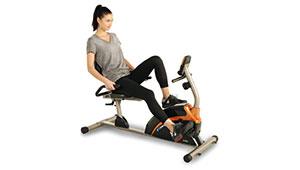


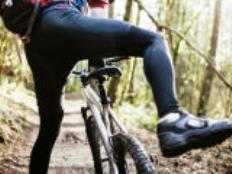
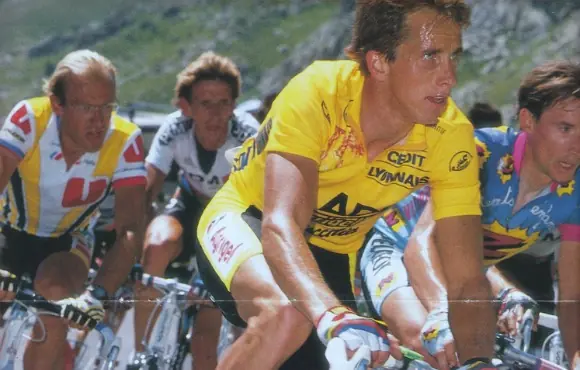
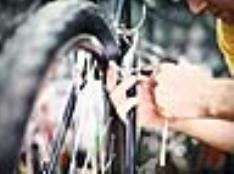
Discuss This Article